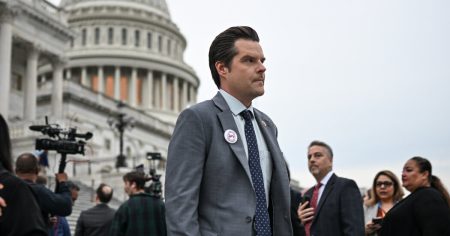The Venezuelan economy has experienced a significant collapse, leading millions of Venezuelans to flee the country to seek refuge in other Latin American countries, as well as the United States. Remittances from abroad play a crucial role in supporting a third of Venezuelan households. Despite the implementation of oil sanctions, which have harmed ordinary people without toppling President Nicolás Maduro, they are politically challenging to lift without receiving something in return. These sanctions also push Venezuela closer to Russia and China, creating potential risks for U.S. interests.
The oil sanctions imposed on Venezuela have had a detrimental impact on ordinary citizens and failed to achieve their intended goal of removing President Maduro from power. However, once sanctions are in place, they become difficult to lift without concessions from the targeted country. In an effort to balance these challenges, President Biden has made exceptions to allow Chevron and European companies to invest in Venezuela, while still officially maintaining the sanctions. This approach reflects the complexity of navigating diplomatic relations with an authoritarian regime.
Despite the limitations of American leverage, the United States is attempting to engage with the Maduro government in order to allow Venezuela to continue exporting oil, without appearing to yield to Maduro’s authority. The challenge lies in finding a balance between exerting pressure on an authoritarian regime and avoiding the unintended consequences of sanctions on the Venezuelan population. Sanctions have historically proven to strengthen the grip of dictators in power, highlighting the difficult task of using diplomatic tools to effect political change in other countries.
As the political and economic crisis in Venezuela continues, the United States faces challenges in finding effective ways to address the situation while safeguarding U.S. interests and strategic relationships in the region. The shifting geopolitical landscape, with Russia and China eager to fill the void left by the U.S., adds further complexity to the situation. The need to balance the humanitarian concerns of the Venezuelan people with strategic objectives underscores the difficulties in crafting effective foreign policy in response to authoritarian regimes.
The Biden administration’s approach to Venezuela reflects the delicate balance between maintaining pressure on the Maduro government and seeking opportunities for engagement in order to address the crisis effectively. By allowing certain exceptions to the oil sanctions, President Biden is attempting to navigate the complex dynamics of the Venezuelan crisis, while also considering broader geopolitical considerations. The challenges of imposing and lifting sanctions on an authoritarian regime underscore the complexity of international relations and the need for strategic thinking in addressing global crises.
In conclusion, the situation in Venezuela highlights the complexities and limitations of using sanctions as a tool of foreign policy to effect political change. The humanitarian crisis in Venezuela, exacerbated by economic collapse and political instability, poses challenges for the United States and the international community. Balancing the need to pressure the Maduro government with the imperative to address the needs of the Venezuelan population requires careful consideration and strategic decision-making. As the crisis continues to unfold, finding effective solutions to the challenges in Venezuela will require a nuanced and comprehensive approach that considers both the immediate humanitarian concerns and the broader geopolitical implications.














